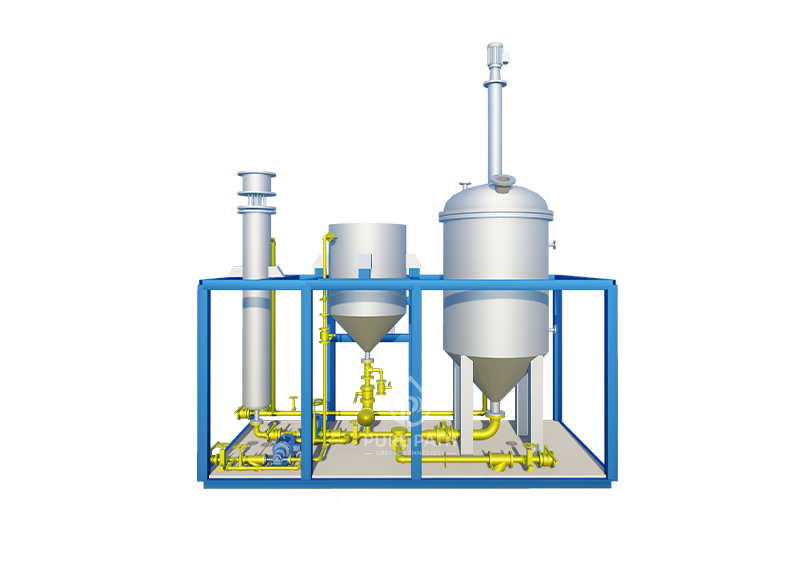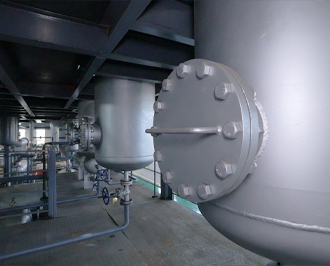The Environmental Impact of Improper Waste Lube Oil Disposal
Waste lubricating oil is a kind of hazardous waste, its main characteristics are permeability, corrosion, flammability, and toxicity. Waste lubricating oil improperly handled and disposed of can have a serious impact on the environment and human health. So, the recycling of waste lubricating oil plays a very good environmental protection effect. This article will give you a detailed look at the dangers of neglecting proper disposal and the role lubricant recycling plants play in protecting the environment.
The Dangers of Improper Waste Lube Oil Disposal
Improper disposal of waste lube oil presents numerous environmental and health hazards, making it essential to understand and mitigate these risks.
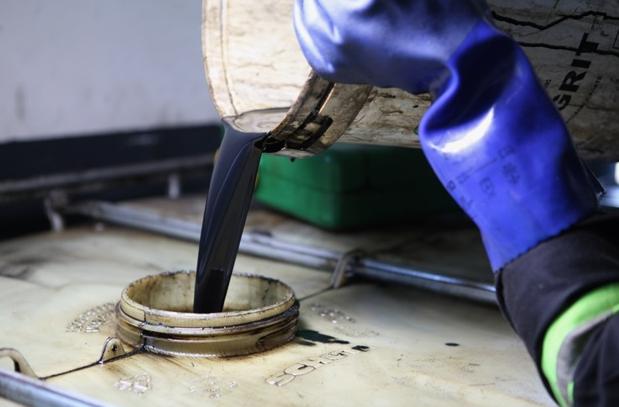
1. Environmental Contamination
Improperly discarded waste lube oil can severely contaminate soil and water resources. When waste oil seeps into the ground, it carries toxic substances like heavy metals and polycyclic aromatic hydrocarbons (PAHs), which can persist in the environment for years. This contamination can render soil infertile and unsuitable for agriculture. When waste oil enters water bodies, it forms a film on the surface, obstructing oxygen exchange and harming aquatic life. Moreover, contaminated water supplies pose serious health risks to humans, including liver and kidney damage, neurological disorders, and increased cancer risk from prolonged exposure.
2. Air Pollution
Burning waste lube oil without proper controls releases harmful pollutants such as volatile organic compounds (VOCs), sulfur dioxide (SO2), nitrogen oxides (NOx), and particulate matter into the atmosphere. These pollutants contribute to air pollution and can cause respiratory problems, exacerbate asthma and bronchitis, and lead to chronic health conditions. Particulate matter, in particular, can penetrate deep into the lungs, causing cardiovascular and respiratory diseases.
3. Health Hazards
Direct contact with waste lube oil can cause skin irritation and dermatitis, posing risks to workers handling oil without proper protective measures. Inhalation of fumes from improperly disposed waste oil can lead to respiratory issues. Furthermore, the bioaccumulation of toxins in the food chain affects humans who consume contaminated food, leading to developmental and reproductive problems, neurological damage, and increased cancer risk.
4. Ecological Impact
The ecological impact extends to various species and habitats. Contaminated water and soil disrupt natural ecosystems, affecting plant and animal life. Wetlands, which act as natural filters and are home to diverse species, are particularly vulnerable. The loss of biodiversity and degradation of ecosystems can disrupt food chains and ecological services essential for environmental health and human well-being.
The Benefits of Waste Lube Oil Recycling
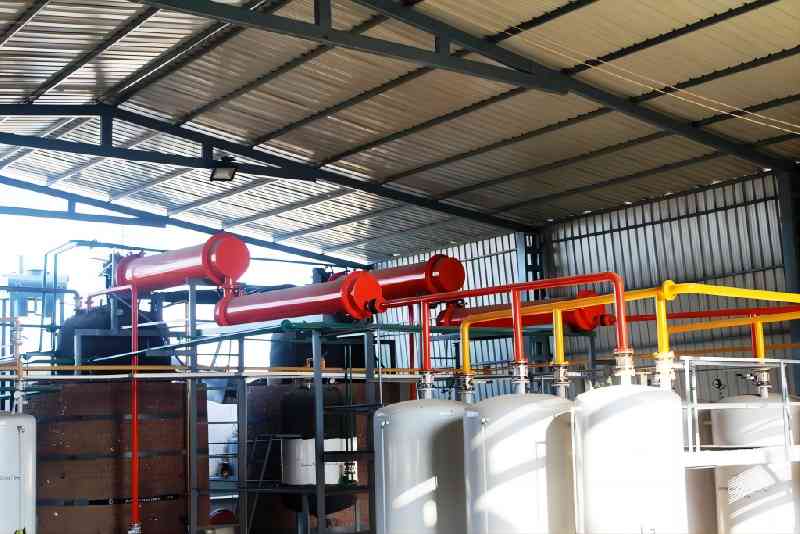
Waste lube oil recycling is a crucial practice that brings extensive environmental, economic, and social benefits. By adopting recycling processes, we can mitigate the harmful effects of improper disposal and turn waste into valuable resources.
- Reduced Environmental Impact: Recycling significantly reduces the need for virgin oil production. Extracting crude oil is a complex and energy-intensive process. Re-refining used oil requires less energy, minimizing greenhouse gas emissions and the overall environmental footprint of the lubrication cycle.
- Conservation of Resources: Used oil is a valuable resource, not waste. Lube oil recycling plants utilize sophisticated processes to remove contaminants and impurities from used oil. This re-refined oil can then be used as a high-quality base oil for new lubricants. This process effectively creates a sustainable closed-loop system, reducing reliance on virgin oil reserves and extending the lifespan of a valuable resource.
- Safer Communities: Proper disposal keeps communities safe from the hazards of spills and improper burning. Used oil can pose a fire risk when stored improperly or disposed of carelessly. Lube oil recycling plants provide a safe and controlled environment for processing used oil, minimizing the risk of accidents and environmental contamination.
- Economic Benefits: A thriving lube oil recycling industry fosters job creation and economic growth. The demand for recycled oil creates a market for used oil collection and transportation, stimulating the creation of new jobs and businesses within the waste management sector.
Finding Lube Oil Recycling Plant
By installing a lube oil recycling plant, your business becomes a champion for environmental responsibility. But with various manufacturers in the market, selecting the ideal plant requires careful consideration. Here are some key factors to explore:
- Technology: Modern plants utilize advanced technology for efficient and environmentally friendly re-refining processes. Look for features like vacuum distillation, thin-film evaporation, and clay treatment for optimal oil recovery and minimal waste generation.
- Capacity: Ensure the plant’s capacity aligns with the volume of used oil you anticipate processing. Consider factors like future growth projections when determining the ideal plant size.
- Compliance: The plant should adhere to all local, regional, and national regulations for waste lube oil processing. Look for manufacturers who prioritize environmental responsibility and ensure their plants meet the strictest environmental standards.
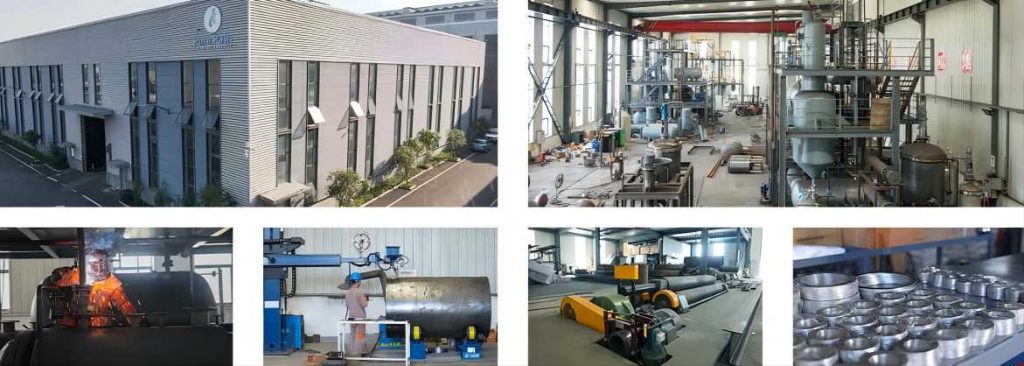
PurePath Tech is a leading manufacturer of innovative and efficient lube oil recycling plants. We offer a range of plant sizes to cater to various processing needs, all utilizing cutting-edge technology for exceptional oil recovery rates and minimal environmental impact.
PurePath Tech provides comprehensive support to ensure your plant operates efficiently and in full compliance with environmental regulations. With PurePath Tech as your partner, you gain access to:
- Expert Consultation: Our team of experienced engineers will work with you to design a customized lube oil recycling solution that perfectly suits your specific needs.
- Advanced Technology: Our plants incorporate the latest advancements in lube oil re-refining, maximizing oil recovery and minimizing environmental footprint.
- Unwavering Support: We offer comprehensive after-sales support, including training, maintenance assistance, and ongoing technical expertise to ensure your plant operates smoothly and efficiently for years to come.
Conclusion
The environmental cost of improper disposal of waste lubricating oil is undeniable. Investing in a lubricant recycling plant allows you to be part of the solution. By providing safe and responsible disposal options, you can contribute to a cleaner planet and a sustainable future for the automotive industry. Contact PurePath Tech today to discover how our advanced lubricant recovery plant can help your business become an advocate for environmental responsibility.



